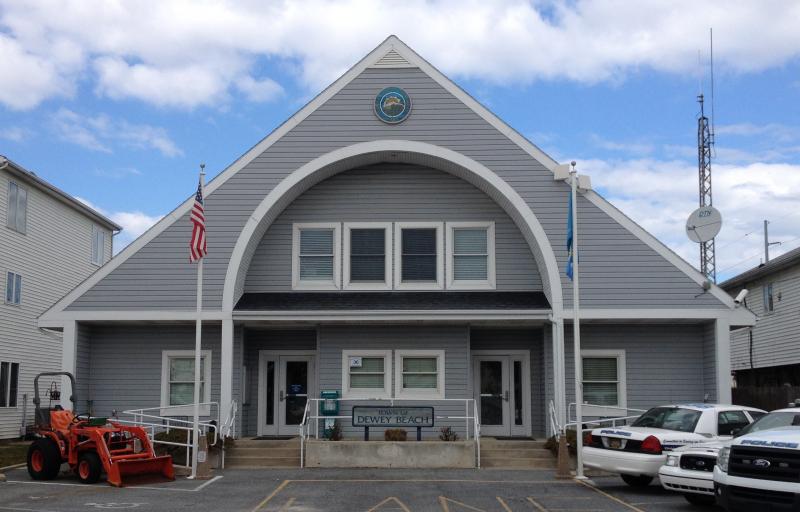Dewey commissioners discuss feasibility of alderman court
With the pending departure of the town alderman and new protective measures required in courts, Dewey commissioners are discussing the feasibility of maintaining the alderman court.
At the council’s April 8 meeting, Mayor Bill Stevens said Alderman Linda Madrid has submitted her resignation, but will remain in her position until next steps are decided.
Town Prosecutor/Police Attorney John Brady said the alderman court was established in the town charter in 1981, when very active alderman courts were operating in beach towns and in northern New Castle County.
In 2001, state legislation determined no new alderman court could be established and any courts closed by a town could not be reopened, Brady said.
In the years since its establishment, the number of employees at Dewey’s court and its budget have increased, Brady said, stating the budget is about $171,000 per fiscal year.
Justice of the Peace Court Chief Magistrate Allen Davis said he is willing to absorb the alderman court, as was most recently done with Bethany Beach, Brady said. Laurel, Rehoboth and Newark still run active alderman courts, Brady said, but there are no longer any in Kent County.
JP Court 2 on Route 24 is closest to Dewey, Brady said, but it will move to the Red Mill Pond area north of Lewes this summer because the courthouse does not meet requirements issued by the Supreme Court that protect victims and witnesses from interacting with defendants outside the courtroom.
Courts have been recently modified to have separate waiting areas, Brady said, but Dewey’s current court does not have such a space. A couple years ago, Brady said, a prisoner broke through the cell wall, damaged the court and escaped before being tackled by officers down by the bay. This incident showed the court was not properly secured, so temporary protective measures were put in place, he said.
When COVID hit, Brady said, courts wanted plastic glass installed between witnesses and the judge, which would need to be considered if the town wants to comply with requirements and keep the court. Space will be needed to comply with state security mandates, and for separate areas for victims and witnesses, he said, noting the town for many years has mixed all court participants on the same bench.
If the town transfers cases to JP Court, Dewey police officers would have to travel there for court, leaving the town short of officers, Brady said, asking commissioners to imagine if a trial was scheduled at 2 p.m., July 3, and officers had to fight traffic to return to town.
In JP Court, the town would have to provide a supervisory police officer to make plea offers twice a month for three hours in summer and once a month for three hours off-season. The town would receive the violation fee, but not the court or security fee, Brady said.
Further, JP Court would want the town to use an electronic ticketing system, which is available in police cars, but handheld units are not available for seasonal officers, Brady said.
Because the alderman court is part of the town charter, any revision would require a charter change, which is not an easy process, Stevens said, and taking police off the streets so they can attend court could be difficult.
Commissioner David Jasinski said commissioners should also keep in mind the potential inconvenience for town visitors, who may think the ability to administratively challenge tickets has been made difficult by the town. He suggested the town could still handle parking tickets, which don’t require a separation between victims and witnesses.
Brady said Bethany Beach took that hybrid approach; the town kept control of handling parking tickets and moved everything else to JP Court 3. A charter change could be difficult to obtain before June, Brady said, advising commissioners to recruit a new alderman and look at the possibility of setting up a voluntary assessment center via ordinance.
Stevens said the town should continue as is for now with support of the current alderman until a new one is in place. In planning for a new town hall, Stevens said, the court would not be exempt from the requirements, so plastic glass and other forms of protection would need to be installed.
According to a report Brady submitted to the town, he suggested that if the alderman court is closed, the town prosecutor position should also be eliminated. In his report, Brady said commissioners need to further discuss the future of the court and that its elimination would save budget dollars but lower court costs and security fee revenues.
For the 2023 fiscal year, the town has budgeted $90,000 in revenue and $119,374 in expenses for the alderman court, resulting in a projected loss of just under $30,000. In fiscal year 2022, alderman court revenues were $105,612 and expenses were just over $99,000, a difference of $6,365.


















































